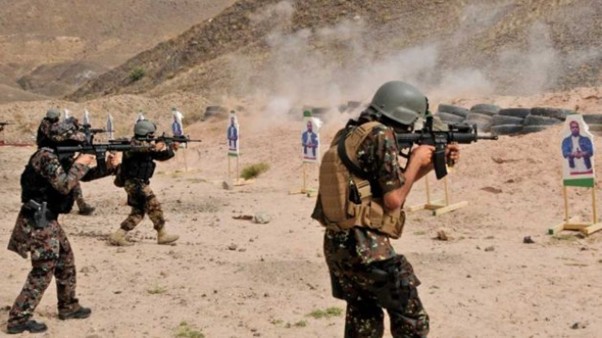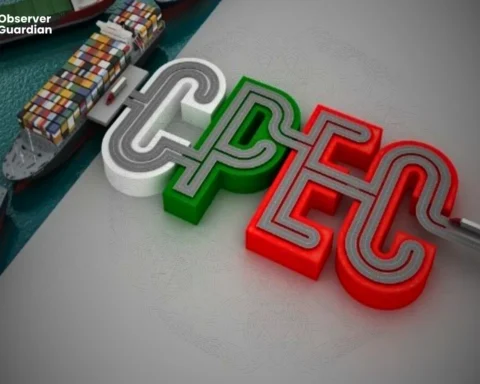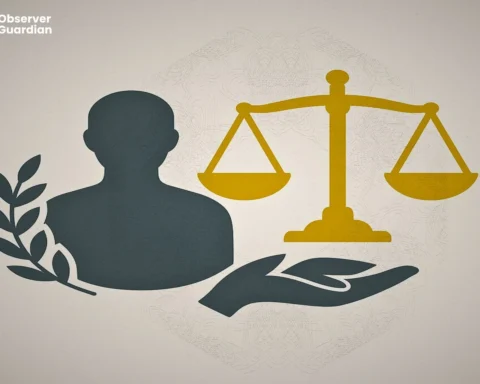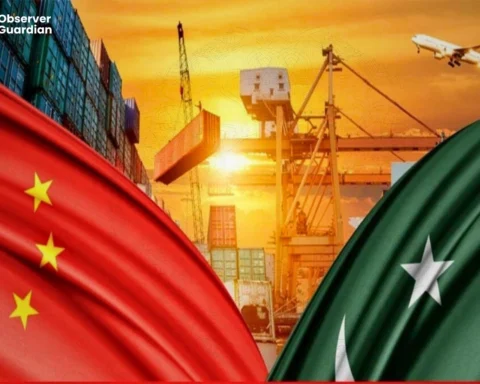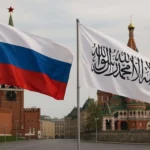The last two decades have shown that Pakistan’s efforts towards counterterrorism are a complex saga that hasn’t received much attention. An attempt to objectively assess the multifaceted narratives of violent extremism unique to Afghanistan and Pakistan, particularly in the context of a politically motivated regional framework, requires a sober, evidence-based approach. Since 2001, Pakistan has prominently featured its role in the global counter-terrorism initiative, motivated by its unfortunate reality as a frontline state. Militarized Pakistan has, indeed, suffered tremendous consequences, but not without some resilience. Pakistan’s counterterrorism strategies have demonstrated remarkable resolve in combating the networks of violent extremist terrorism.
In response to the increasing levels of Afghan terrorism and domestic militant groups like the Tehrik-i-Taliban Pakistan, these developments forcibly compelled Pakistan to undertake a long and intense aggressive military campaign. Among these, Operation Zarb-e-Azb (2014), with the participation of 150,000 troops, was significant. During this operation, approximately 3,500 militants were either slain or captured. Additionally, 4,000 square kilometres of territory were captured in North Waziristan. The destruction of local transnational terrorists’ infrastructure also enabled the elimination of local transnational terrorist command and control systems.
The operation also symbolized a major shift away from focused incursions towards an all-out and absolute eradication of terrorism and its multifaceted expressions within Pakistan’s borders.
In 2017, another important Operation, Radd-ul-Fasaad, got underway. The scope of Radd-ul-Fasaad is wider than that of its predecessor. To undermine extremist ideologies, it shifts focus from violent individuals to intelligence-based operations (IBOs). More than 50,000 of these operations have been conducted nationwide, focusing on major cities known to harbour soft components of militancy, such as radicalised cells, facilitators, and fundraising networks. The shift from broad, kinetic military operations to more precise, intelligence-led enforcement is evident in Pakistan’s counterterrorism strategy.
Not far from Pakistan, India has been especially vocal in criticizing Pakistan’s counterterrorism policies. Charges of government cooperation in terrorism often lack the distinction between past policy mistakes and present state behaviour. The country’s post-2008 security strategy shows a strategic change from past methods by a real commitment to eradicate terrorism in all spheres. Claims of dishonesty ignore developments accepted by agencies for international monitoring.
Officially delisted Pakistan from the grey list in October 2022, the Financial Action Task Force (FATF), an international body monitoring funding of terrorism and money laundering, after major changes in the legal and financial sectors, this choice satisfied all 34 goals of the action plan. These foreign sponsorships show that Pakistan has taken major steps to follow international norms rather than supporting the claims that the country has neglected terrorism.
Both the US State Department and the UN have said that Pakistan has been working to destroy safe havens and improve inter-agency cooperation.
The complexities of terrorism in South Asia have to be valued highly. Regional instability aggravates Pakistan’s problems, especially in Afghanistan post-2021, where the security void has allowed some terrorist groups to reassemble. In considering the context of the preceding efforts, Pakistan continues to face severe and complex humanitarian concerns. Following the Soviet Invasion of Afghanistan in 1979, Pakistan provided refuge to over three million Afghans until 2001. The magnitude of this commitment has burdened Pakistan’s limited resources and exacerbated border security challenges, especially in the absence of adequate international aid. Pakistan’s permissiveness with these refugees, despite the risk of radical infiltration, is remarkable. Other nations, at least in the West, have largely neglected fleeing populations. This anaemic contribution toward global humanitarian efforts has been acknowledged.
Without foreign financial and technological aid, very few countries could manage the required level of border control and surveillance at the ethnically flexible Durand Line, which serves as Pakistan’s border with Afghanistan. Pakistan has boosted biometric and physical border control, but these tightening measures require support and cooperation from bordering nations.
Pakistan needs to formulate a multi-faceted, coherent policy approach to tackle the ultra-violence that goes beyond militarized efforts. In the sphere of education, the drive to establish the National Counter Terrorism Authority (NACTA) led to the formulation of the National Action Plan (NAP) alongside community participation policies and was integrated with other youth-focused de-radicalization initiatives.
Policies that require political continuity and prolonged investment would benefit the most from intensified international collaboration.
There is an urgent need to review this part of the strategy for engaging in counterterrorism in Pakistan. This can improve both regional and international peace by avoiding outdated stereotypes and zero-sum diplomatic approaches, and recognizing Pakistan as an ally with great sacrifices and fiscal expenditures. Through economic and policy dialogue, and strategic council, which are all aspects of constructive Pakistan, it might gain the momentum to further its status and stem the tide of extremist threats.
Counter terrorism in Pakistan remains an open issue, but has undergone fundamental shifts in its scope and character. There is a new emphasis on regional peace, national stability, and domestic security as opposed to aligned hard policy implementation or rote externally oriented alignment. Critics who approach Pakistan’s policies from one angle need to change their views. There is enough evidence today that points towards the fact that Pakistan is trying to actively orchestrate efforts to eradicate terrorism, not to facilitate its spread. Marginalization and denigration do not characterize the level of support such efforts require.

